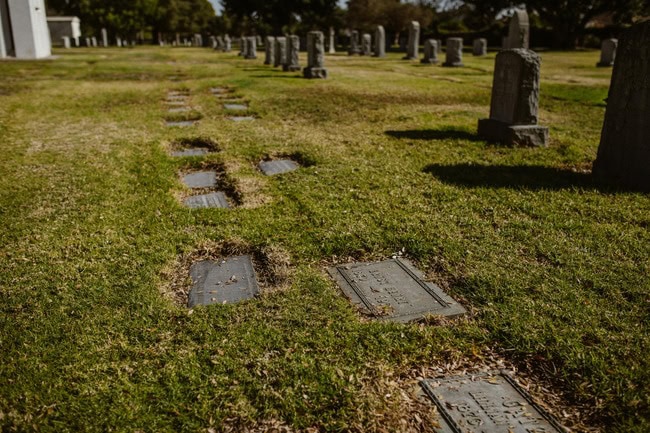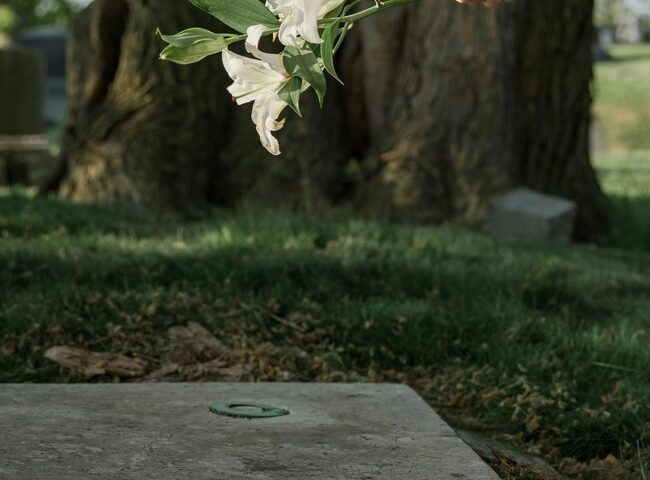Types of Funeral Services: Religious Funeral Services

Types of Funeral Services: Celebration of Life Services
June 1, 2025Spiritual funeral services are highly significant to the majority of families. They are a way of celebrating the deceased as well as reflecting the cultural and religious beliefs of their religious community. Whether a Christian service of traditional custom, an Islamic burial service with respect, or a Hindu cremation ceremony, each service has a particular function—to provide comfort to the grieving and to reaffirm the basic principles of the faith.
People typically find solace in these services as they offer formal opportunities for saying goodbye, following customs that have been established for centuries. While each religion has its own customs, the intent is always identical: to show respect for the deceased and bring comfort to the grieving through communal prayer, ritual, and reflection.
Common Elements in Religious Funerals
Despite the diversity of religious traditions, the majority of funeral services share many similarities. Rituals are always present, most often conducted by religious authorities who provide prayers, blessings, or eulogies. The rituals help the mourners understand their loss and strengthen their religious faith.
Music and hymns are common, whether through choirs, instrumental pieces, or congregational singing. Scriptural readings are also a significant component, offering words of comfort, hope, and reflection.
Symbolic actions are also present. Lighting candles, offering flowers, or partaking in a meal are all means of honoring the memory of the dead. All these various components come together to create a space in which grief is communal and memories are honored together.
Funeral Traditions Across Major Religions
Religious funeral rites vary greatly across cultures, reflecting each religion’s unique beliefs and values. Understanding these practices helps families celebrate their loved ones according to their religious and cultural heritage. Below is an overview of how the world’s major religions approach funeral services, including key practices and beliefs.
Christian Funeral Traditions
Christian funerals focus on memorializing the deceased life but one with a theme of belief in eternal life. Denominations vary, yet most include prayer services, hymns, scriptural readings, and a eulogy. Catholic funerals, for example, usually entail a funeral Mass, where Eucharist is served, with a graveside service to follow. Protestant services will have additional focus on personal eulogies and scripture readings as typical for the beliefs of the denomination.
Jewish Funeral Traditions
Jewish burial customs are plain and respectful of the deceased. Burial is most often within 24 hours, unembalmed and in simple caskets. The body is cleansed in the Taharah ritual and wrapped in a plain shroud. The Kaddish, a prayer to the dead, is said by mourners. The bereavement lasts for seven days, Shiva, when loved ones and friends call to offer condolences and reflect on the deceased.
Islamic Funeral Traditions
Islamic funerals include some rituals to respect the dead and praying for the soul. The deceased is washed (Ghusl), wrapped in a plain white cloth, and facing Mecca. The prayer of Janazah is recited, invoking Allah’s mercy. The burial is quite rapid, with the body straight into the ground. Cremation is prohibited, as the faith instructs putting the body into the earth.
Hindu Funeral Traditions
Hindu funeral ceremonies are focused on taking the soul to the hereafter. The most preferred practice is cremation, which serves as a representation of liberating the soul from the dead body. The eldest son or any other elderly male kinsman performs ceremonies that include washing the body, anointing it with ghee, and reciting sacred mantras. Ashes could be thrown over a holy river in the form of purification and liberation (Moksha).
Buddhist Funeral Traditions
Buddhist funeral practices emphasize the peaceful passage of the soul. Practices vary according to region but share some of the following practices: chanting, meditation, and merit-making for the deceased. Cremation is common because it is with the belief of impermanence. Monks are able to lead prayers, while family members practice merit-making rites to support the passage of the soul.

Sikh Funeral Traditions
Sikh funeral rituals, or Antam Sanskar, revolve around the soul’s journey and the following of God’s will. Cremation is customary, with recitation of prayers like Kirtan Sohila and Ardas. Hymns are sung by the congregation and the life of the deceased is reflected on, showing faith in the merging of the soul with God.
Cultural Influences on Religious Funerals
Religious funeral customs are very tradition-laden, but cultural influences shape the way the rites are observed. Even among adherents of the same religion, funeral customs can be extremely varied based on geographic, ethnic, and cultural diversity. Christian funerals in the US, for example, might involve a formal church service and then burial, but Christian denominations in some African nations might include more congregational singing and dancing as part of the mourning process.
Cultural influences track the values and social norms of the culture. In some cultures, the funeral procession itself is an integral part of respect for the deceased. In other cultures, the focus may be on private, familial rites. Additionally, cultural requirements for the duration of mourning, dress, and memorialization practices can vary vastly despite shared religion.
Respecting cultural differences in planning a religious funeral entails an understanding of the way in which traditions have developed over time and across different localities. Attentiveness to the family’s background and ensuring the service reflects both religious and cultural customs is also entailed.
Modern Adaptations in Religious Funeral Services
Contemporary challenges have prompted changes in how religious funerals are performed. The COVID-19 pandemic dramatically altered the way communities handle funerals, with more virtual funerals and adjusted rituals to adhere to health protocols.
Virtual funeral services were an obligatory adaptation that allowed loved ones to participate virtually when mobility was restricted. Some religious leaders tried innovative efforts to incorporate conventional elements into online funerals, such as broadcast prayers or performing eulogies over video. While some viewed such adaptations as short-term, many communities continue to offer virtual services for the ones who cannot participate physically.
Health concerns also led to less complicated, more intimate ceremonies, which often included only immediate family. These modifications sometimes included the reduction of communal rituals, such as communal feasting or physical displays of condolence.
Molding religious funeral rites to modern requirements illustrates the elasticity of traditions in conformity with prevailing realities. Communities have been surprisingly accommodative, adapting means of paying their respects while ensuring safety.
Conclusion
Awareness of diverse religious funeral traditions helps to instill respect and tolerance. Cultural and modernizing influences alter the manner in which rituals are carried out, a reminder that customs evolve but still retain their inherent significance. In planning a funeral for one’s own faith or assisting someone of another culture, awareness of these influences will ensure the ceremony honors tradition as much as contemporariness


